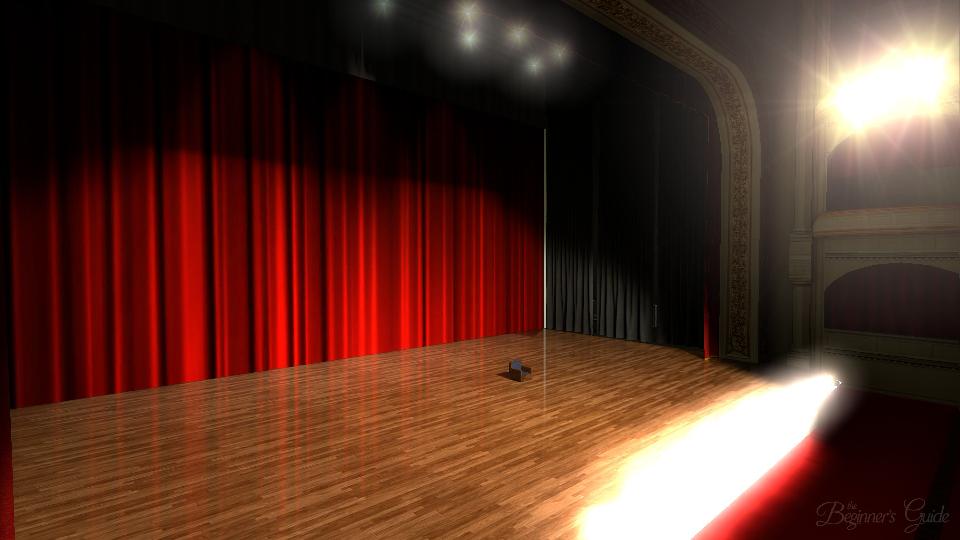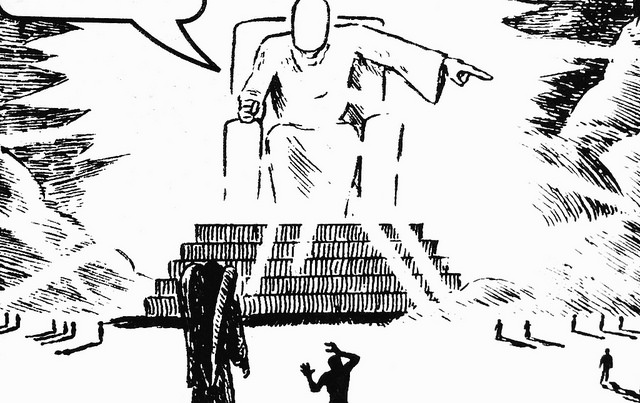On Sunday, after I got home from the Easter festivities, I knocked something off of my games backlog: The Beginner’s Guide. It’s a really interesting experience (though I’m not sure I could actually call it a game, even by my own loose definition of “game”) and got me thinking about, well, how much thinking I do about my hobbies.
Now before I go any further, I should reiterate that I think there’s tremendous value in taking hobbies and interests (gaming especially) to a deeper-than-surface level. I love the work of Jack Berkenstock and Sarah Lynne Bowman a great deal and I really get into symbolism in my media (when I catch it, anyway). I just about jumped out of my chair cheering at the cleansing metaphor of the rain at the end of the fourth episode of Season 2 of Daredevil when I watched it, and while I’m not as good at articulating it as Grant is, I’m very much in favor of the gaming table as a way of exploring moral, psychological, philosophical, and theological concepts, as well as a place for building interpersonal skills. In short, I am an enthusiastic, happy believer in using fun for good and thinking below the surface of the media we consume.
There’s a very real risk if we’re not careful of falling into the infamous “high school English teacher” trap of over-analyzing something to the point where it loses all meaning, or at least the intended or original meaning, but there’s also the problem of thinking one’s fun has to “work” (as in “toil” not as in “function”) all the time.
Because of that, I find it useful (if a bit frustratingly difficult at times) to remind myself on occasion that fun for its own sake is perfectly okay and beneficial in its own right. The Beginners Guide did a fairly jarring and harsh job of reminding me of this as I played it this past weekend. Note: for those who haven’t played it, The Beginner’s Guide is only about 90 minutes long, so it’s quick to get through but also almost impossible to talk about without spoiling to some degree. So I’m going to spoil it a bit – you’ve been warned. Anyway, in The Beginner’s Guide, one character over-interprets his friend’s work and invents a need for help where none exists, which then leads to a betrayal of trust and the loss of a friendship. In effect (to swipe rather irreverently from Tolkien), he dug SO deep that he unearthed a Balrog. He tried to make the projects of his friend Coda work as an insight into his friend’s inner struggles and saw a call for help when one wasn’t there – in effect he fell into the “English teacher trap” and the “fun needs to be more than fun” trap at the same time.
While I haven’t shared work I wasn’t entitled to share with people it was never intended to be shared with like the narrator in The Beginner’s Guide, there have been times where I’ve fallen into the trap of thinking that I really shouldn’t be having fun with my hobbies unless they were also serving some other purpose. I needed to be generating content, or having some philosophical revelation, or even just practicing my critical analysis skills (which admittedly CAN use some more development) or I should stop. I was digging down past the point where it was fun and missing some of the inherent worth of recreation: stress relief, rest, and joy. (Also: don’t let the word “was” make you think this is some long-defeated character flaw and that I now have perfect perspective. I did this to myself last week.) However, like so many of these more introspective posts, I’m not always entirely sure where those lines are. The Beginner’s Guide, for example, is clearly supposed to be thought about and analyzed even as it cautions about the perils of over-thinking and over-analysis.
At times like this, I think back to our conversation with Kyle Rudge of Geekdom House on episode 68, and try to remember that art has worth of its own and that consuming it can be edifying in its own right. A lot of the time there’s good stuff below the surface of our entertainment, but sometimes it’s worth taking the time to appreciate the surface itself and just let that be enough.




